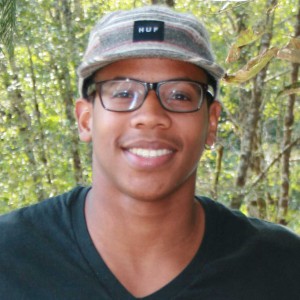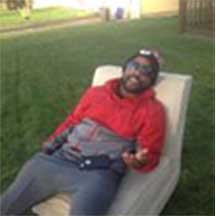Whom are we serving? How would they like to be served? Who are we? All these questions of assessment and reflection are necessary in the pursuit of serving the public in meaningful ways that transcend the context of a class assignment. Instead of simply an assignment, our project is a real world endeavor, (with the class as the medium) where the “grades” are in the form of impact on the lives of people in the community.
I am working on Evaluating Rest Stops and Micro-Villages in the City of Eugene
as a part of one project for this year’s Community Planning Workshop. The specific project is related to developing and identifying strategies toward best practice of providing housing for the unhoused population in Eugene. Our project will provide recommendations as to how the City of Eugene may better facilitate the provision of micro-village programs (like Opportunity Village) that provide safe places of transitional housing for the unhoused.
Recently, in an evaluative checkpoint of the work our group has done thus far, we met with our working committee. The working committee includes two representatives from City of Eugene’s Office of Human Rights Involvement, an Opportunity Village Volunteer, and a representative from both Community Supported Shelters and Nightingale Health Sanctuary.
This meeting was affirmation that, since the beginning of the project, our team has become more informed and well-versed in the issue of there being many unhoused individuals in the City of Eugene; however, it was also a reminder that our understanding has only scratched the surface. The majority of the meeting was set aside for dialoguing with our committee and receiving feedback about our work-to-date as well as our plan for moving forward.
Coincidentally, this meeting followed a class session about the integration of empathy into the planning process. This class in particular was generally relevant to our group and topic of engagement because assessing provisions for the unhoused, as a project in social justice, requires a point of departure firmly situated in empathy. The in-depth feedback received from our working committee, reiterated this necessity. How, as a team, do we integrate empathy into our approach to problem solving and planning? The way to integrate empathy is to start with empathy and the accompanied processes of active listening and welcoming constructive feedback.
It is not until we become listeners, unequivocally so, that we can become empathizers. Then, we can move in that empathy toward making a positive contribution and meaningful impact with/for the people we serve.
 About the Author: Jaleel Reed is a dual-Master’s student in Environmental Studies as well as Community and Regional Planning. An environmental scientist by degree from Northwestern University, he has re-oriented his interest toward environmental justice and community development. Outside of class, Jaleel doubles as a food and fitness enthusiast.
About the Author: Jaleel Reed is a dual-Master’s student in Environmental Studies as well as Community and Regional Planning. An environmental scientist by degree from Northwestern University, he has re-oriented his interest toward environmental justice and community development. Outside of class, Jaleel doubles as a food and fitness enthusiast.


